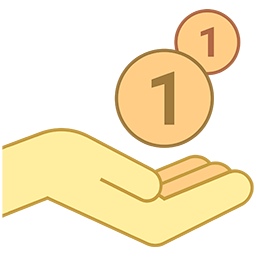Community Guidelines and Guidelines for Formulating Legal Issues
This is an automatic translation.
Click here to read the publication in the original language.
On the Internet there is a huge number of sites offering both paid and free legal advice, and some of them are even given by lawyers, or by those who consider themselves lawyers. Personally, I consider the most professional community of lawyers and lawyers " Pravorub ", in which I recommend looking for professionals to participate in legal proceedings.
In this community, everyone can ask a question about a "near-legal" topic, and get answers, or rather advice from other users, but it should be understood that no distance councils can replace a full (mostly paid) legal consultation, and even more so, personal The participation of a professional in resolving your dispute.
How to ask the right question to get a useful answer :
When asking a question, it is necessary to understand that from how fully and clearly it will be formulated, the answer to it will be so full and useful, therefore it is necessary to observe several simple rules:
The answers on the question posed by you to the site have only an indirect relation to the real situation described by you. Some of the circumstances of your case you could not include in the description, some distort, at last, some circumstances in general you might not be aware of.
All answers are given only on the basis of the facts reported by you. They may be true in relation to the abstract situation described by you, but since the actual situation may not correspond to it, they should be applied only after a careful study of all the circumstances of the case.
Try to state your situation consistently, logically and rationally - no your emotions will help in assessing the situation in which you turned out. You really need to get good advice, not just sympathy.
If you have a person to the recommendations of which you follow (be it a professional lawyer, a student, any person positioning himself as if he knows anything about the issues of law), do not hesitate to ask him to formulate the questions that interest you.
Observe simple rules :
1. The title should reflect the meaning of the question.
Headings such as "hello", "what to do", "help", "article XX" - completely useless, and do not cause any desire to respond.
The correct title should look something like this: "Since when is the deadline for filing an appeal in court?", Or "Can a forensic bailiff break open the door to my apartment?".
2. The description of the issue should be consistent and specific.
It is not necessary to describe exactly what the clinic manager told you, whose work you were unhappy with. It is much more important to list the terms of service, and actions (not words) of all of its conflicts, as well as what documents were drafted and what decisions were made. The correct question is half the answer.
3. Actually the question should be as specific as the title.
It makes no sense to write: "Well, who is he after this?" Correctly: "What amount of compensation for moral harm can I expect?".
If the question concerns any terms, then the events should be described in chronological order and time sequence: what happened and what happened.
Before publishing the question, read it aloud. Is the meaning of the question clear? If necessary, correct and complete the text.
4. Check spelling - write competently.
Texts written without using capital letters, punctuation marks and spaces are very inconvenient to read. Type in all the text, incl. headline, in capital letters only, is considered indecent on the Internet.
The easiest way is to first write the text of your question in any text editor, check the spelling and placement of punctuation marks, and only then copy the checked text from the text editor and paste it into the desired form field on the site.
5. Do not wait for a ready solution.
We should not forget that free responses on the site can not replace a full-fledged legal aid. Answers to questions can help you navigate the situation, and avoid gross mistakes, but they can not be printed and taken to court to solve your problem.
If the issue is serious, and the price of the error is high, it is better to contact the right specialist privately for a full consultation, preparation of documents, or ask him to represent your interests directly in court. Naturally, you need to be ready to pay for this work.
6. Observe decency.
If you do not like the answer, or you think it is not complete enough, it does not necessarily mean that the answer is really bad. Most likely, it is you who asked the incorrect question, or do not understand the answer, because have already answered to themselves, or have heard the advice of the layman.
In any case, do not be rude - this can lead to the fact that you simply "banned", and you can not ask anything else.
After asking a question or writing a clarification, do not wait for an immediate answer, because no one is obliged to answer you for free, and even more so urgently. If your question remains unanswered for several days - then it is set incorrectly, and it needs to be reformulated.
When assessing the answers to your question, consider the occupation of the respondent indicated in his profile, since the most, as you think, "suitable" answer may not be the most correct one.
Having received a motivated answer, do not forget to thank the responding professional in the comments, write a review on his personal page or in his blog - the next time you will be more willing to answer.
Asking "business questions" in the free section is a zest. If your question relates to the activities of your company, it's better to immediately apply for paid help, rather than trying to save a few thousand on a million problem, at the same time having lost time and having done a lot of stupid things.
* * * * *
I hope that you will not get into a difficult conflict situation, but if this happened, try to get out of it with minimal losses.
Behave yourself wisely and conscientiously, and everything will be fine!
This is an automatic translation.
Click here to read the publication in the original language.


 Advertising on our project is a great way to promote your products or events!
Advertising on our project is a great way to promote your products or events! 

































